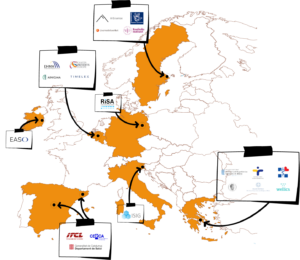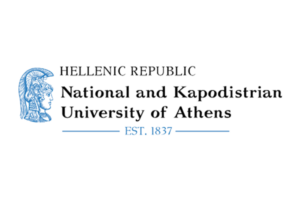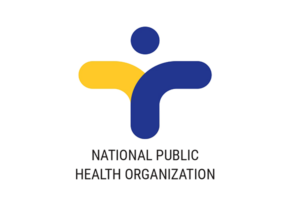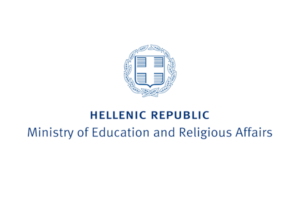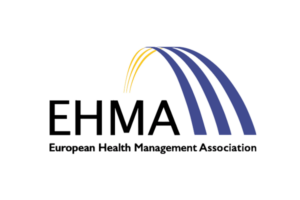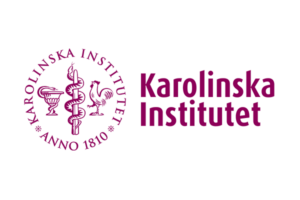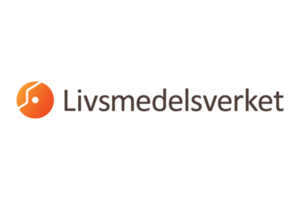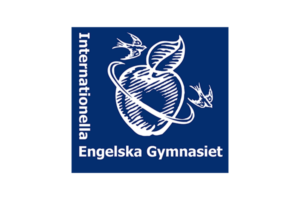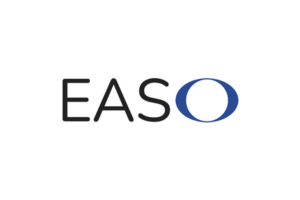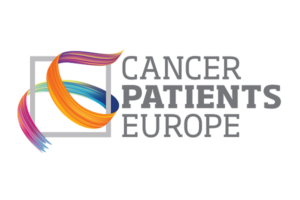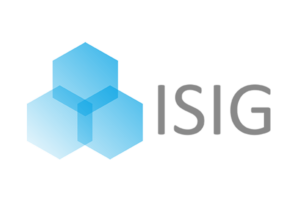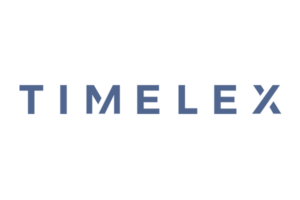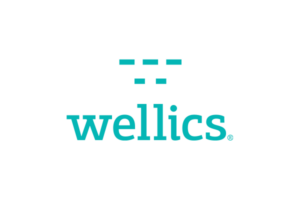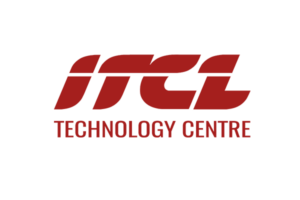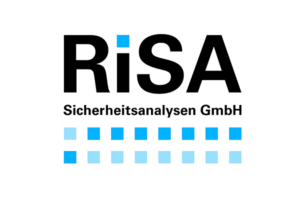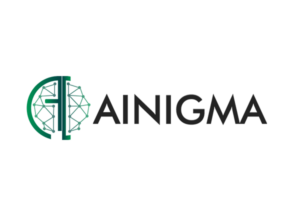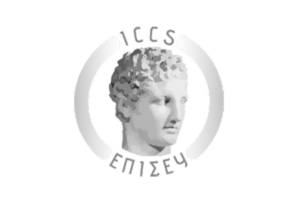This project brings together 20 partners from 7 European nations to combat youth obesity. Through the implementation of interventions tailored to specific contexts, it addresses primary risks and lowers cancer concerns associated with excess weight. The collaboration seamlessly merges academic institutions, health authorities, ministries, schools, safety agencies, associations, and nonprofits collaborating as one cohesive force.
National and Kapodistrian University of Athens
NKUA is a research University and, as a leading higher education institution since 1837, it aims to advance knowledge and educate students in sciences and arts that will best serve the nation and the community of the twenty-first century. Committed to innovation and academic excellence, we seek to infuse each member of our academic community with a passion for research and knowledge gain. We encourage the cultivation of creativity, maturation of social and cultural sensibilities as well as critical thinking, by supporting free and open dialogue and a culture of integrity and diversity. Our vision is the constant commitment to four main principles: (i) research, education and training shall be characterized by a quest for high quality and distinction, (ii) the University’s leading role shall be safeguarded by a constant engagement to innovation and creativity, (iii) the academic community members shall participate actively in scientific, social and cultural events, (iiii) our standpoints shall reflect our historical and contemporary Greek culture worldwide through scientific activities.
Role in the project
NKUA’s role is coordinating the joint efforts of the consortium during the execution of the project, ensuring the smooth progress of the work plan and the fulfilment of the consortium’s contractual obligations, and providing the necessary liaisons between the consortium and the EC.
Contact person: Dora Spyropoulou
Ethnikos Organismos Dmosias Ygeias
EODY’s or else the Hellenic National Public Health Organization’s (NPHO) mission is to provide services that contribute to the protection and improvement of health and increase the life expectancy of the population by enhancing the capacity of the National Healthcare System. This is done with a focus on public health services to respond effectively to threats to human health through the early detection, monitoring and evaluation of risks, reporting and submission of evidence-based proposals and intervention measures. The main NPHO activities are epidemiological surveillance, risk assessment, scientific consultation, preparedness and response, provision of reliable and comparable epidemiological data and statistics to national, European and international authorities, education and training in the field of public health, informing the public and health professionals about the risks of serious health threats and promoting public awareness-raising actions. NPHO is the operational centre for planning and implementation of public health protection actions, maintaining readiness to respond to emergency health risks and adjusting its operations to the needs of the country and the international organizations with which NPHO collaborates.
NPHO develops and promotes actions aimed at promoting health, preventing chronic
diseases and reducing, in general, the burden of non-communicable diseases.
Role in the project
EODY plays a significant role in selecting the best practices for further uptake and scaling up and along with the rest of the partner public authorities will scale up the PREVENT interventions within its jurisdiction. EODY is also involved in the examination of the current intervention policies and weight control strategies, especially in childhood and adolescence, and in the identification of the current barriers and gaps of each intervention policy. As a public health authority, EODY also contributes to constraining the delivered toolkits to medical requirements and is actively involved in the PREVENT co-creative policy-making framework and piloting by provisioning health-targeted guidelines.
Contact person: Angeliki Lambrou
Ministry of Health (Greece)
Greek’s Ministry of Health‘s mission consists of preserving and promoting the well-being of those residing in Greece through designing and implementing diverse health policies and reforms. Through a multitude of public health interventions, MoHGR targets critical fields and population groups at risk in an attempt to enhance the overall state of health in the country. The Directorate of Operational Preparedness for Public Health Emergencies actively participates in ONCOSCREEN and has valuable experience in crisis management and public health emergencies, including piloting interventions, and trialling procedures that lay outside the day-to-day functions of a health system. The Directorate of Operational Preparedness for Public Health Emergencies has actively participated in several Horizon Europe and Horizon 2020 projects, most recently in STAMINA, HEART, ONCOSCREEN & ONVODIR.
Role in the project
Within PREVENT MoHGR will contribute accordingly to different tasks and project activities as a partner expert in health policy and public health promotion to enhance the uptake of PREVENT’s results and evidence-based suggestions.
Contact person: Konstantinos Gogosis
Ministry of Education and Religious Affairs Greece
The Ministry of Education, Religious Affairs and Sports is a government department of Greece. One of the oldest ministries, established in 1833, it is responsible for running the country’s education system and for supervising the religions in Greece. The incumbent minister is Christos Kittas.
Role in the project
EDU’s role in the project is to contribute to the educational barriers and to adaptation of the new policies to the scholar environment. Moreover, EDU is involved in the implementation from their respective point of view, that is provisioning of health targeted guideline or specific educational activities and will introduce the new PREVENT interventions within the course “Laboratory Skills”, which is a special course in Primary and Secondary Schools in Greece where students experiment with new policies and interventions.
Contact person: Xanthippi Tokmakidou
European Health Management Association, EHMA
The European Health Management Association (EHMA) is a Belgium-based non-profit membership organisation that focuses on enhancing the capacity and capability of health management to deliver high-quality healthcare. EHMA’s vision is to support the spread of knowledge on excellence in health management at all levels: systemic, organisational and individual. EHMA operates at an international, European and national level, with a membership of over 50 organisations and 30+ individuals and a broader network with over 1,000 key stakeholders ranging from managers, educators, professionals and more. EHMA’s activities revolve around three key workstreams: (i) membership-focused actions and network engagement, (ii)research and EU project work , and (iii) events and workshops, such as EHMA Annual Conference and the Yearly Programme Directors’ Group Meeting.
Role in the project
EHMA plays a pivotal role in the project’s expansion efforts. As the driving force behind scaling-up actions, EHMA oversees the expansion of interventions by public institutions within their jurisdiction, while health and patients’ associations spearhead upscaling for their respective communities. EHMA also leads the Research Synergies, Dissemination, Communication components, maximising the project’s impact.
Contact person: Giuseppe Martone
Karolinska Institutet
Karolinska Institute (KI), founded in 1810, is Sweden’s only university, especially focusing on biomedical sciences. In addition, KI awards the Nobel Prize in Physiology or Medicine annually. KI ranks as one of the world’s leading medical universities, thanks in part to the quality of its research activities, which today account for 40% of all medical research in Sweden. Some 80% of KI’s income is devoted to research, distributed among some 600 research groups covering all medical fields. Department of Biosciences and Nutrition, IMPACT research group has extensive experience in applied nutrition, physical activity, and obesity research, with 20 years of experience in data collection of physical activity and nutritional/dietary behaviours at different ages, mostly focusing on children and adolescents. Ioannis Ioakeimidis’ Research Unit has strong expertise in lifestyle, dietary, and physical habit analysis, on real-life behavioural modelling and behavioural change research. His group has EU-project experience spanning from end-user system requirement analysis and design to the coordination and realization of children and adolescent data collection with an emphasis on school-based actions and interventions.
Role in the project
KI’s role is pivotal in designing and continually adapting the Living Labs of PREVENT used for research and piloting. This includes selecting members, defining health-related indicators, addressing ethical concerns, establishing data collection methods, and monitoring procedures. KI also contributes to crafting active engagement strategies aimed at multiple stakeholders, encompassing schools, local communities, families, peers, and the public. Additionally, KI facilitates workshops involving various stakeholders to assess and refine these strategies, ensuring their effectiveness.
Contact person: Ioannis Ioakimidis
Livsmedelsverket
The Swedish Food Agency works to ensure that the food that is produced, sold and served in Sweden is safe and honest, to create a society where it is easy for people to eat healthily and sustainably and that there is security in the supply of food and drinking water both daily and in times of crisis.
Role in the project
Livsmedelsverket forms part of the Swedish node. As a partner expert in food and health, it will contribute accordingly to many different tasks and project activities, for example examining current policies and strategies, and identification of current barriers and knowledge gaps.
Contact person: Emma Patterson
Internationella Engelska Skolan I Sverige Ab – Internationella Engelska Gymnasiet
Internationella Engelska Skolan (IES) opened its doors for the first time in Sweden in 1993. Since then, what was a single school in Stockholm has grown to a nationwide learning organisation with 46 schools from Trelleborg in the south to Skellefteå in the north, currently educating 32,000 students. IES is a non-political, non-religious school organisation. IES provides an alternative to families searching for an international environment with a focus on learning and command of the English language through the national curriculum.
Internationella Engelska Gymnasiet in Södermalm (IEGS) is the only Upper Secondary School (Highschool) within IES. IEGS has a strong academic tradition and a commitment to helping students develop to their full potential ensuring that they are well prepared for what comes next. IEGS has previously contributed to research activities in innovative EU projects that have explored adolescent lifestyle, dietary, and physical habits.
Role in the project
IEGS will coordinate activities in their school and reach out to other schools in Sweden. With KI, our schools will contribute to the Living Labs of PREVENT used for research and piloting. IEGS will also contribute to reviewing their current educational policies and potential barriers that focus on student health and development.
Contact person: Rachel Heimeier
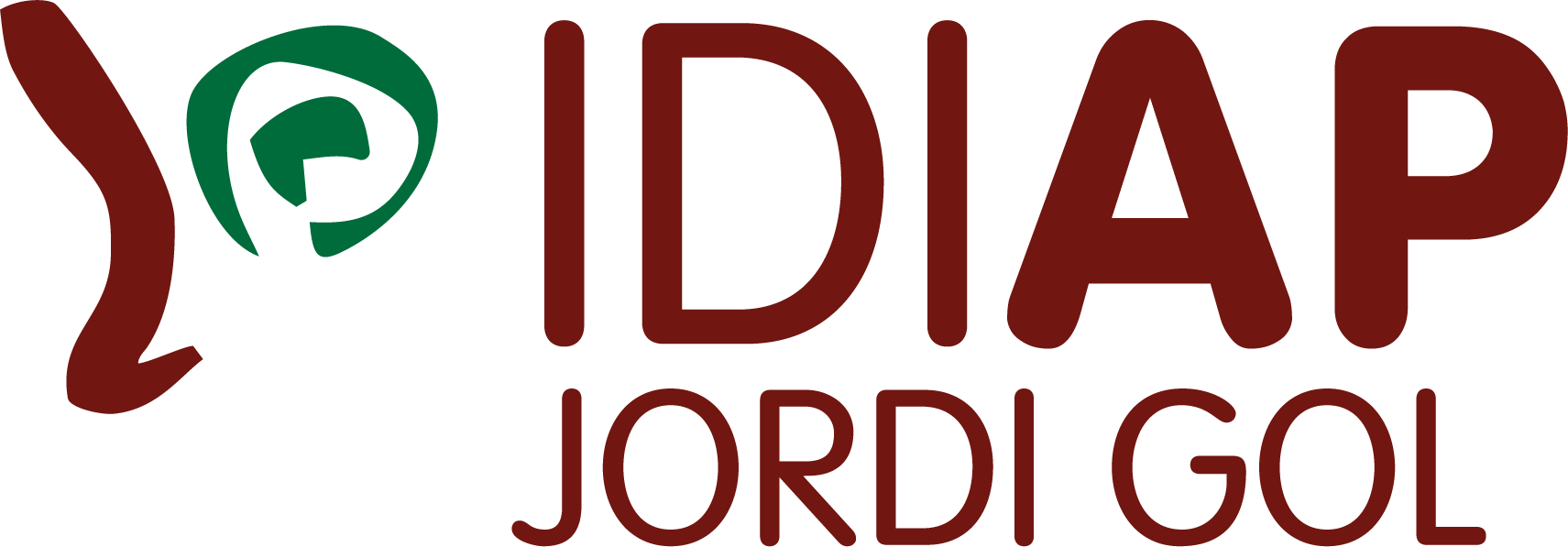
Fundació Institut Universitari per a la Recerca a l’Atenció Primària de Salut Jordi Gol i Gurina (IDIAPJGol)
Fundació Institut Universitari per a la Recerca a l’Atenció Primària de Salut Jordi Gol i Gurina (IDIAPJGol) is a centre of reference in research and health promotion at the primary health care level that aims to promote and develop innovation, clinical, epidemiological and health services research in the field of primary health care.
IDIAPJGol also offers training to generate knowledge, disseminate results and transfer them to clinical practice to bring efficiency to the health system and promote and enhance the well-being of individuals.
IDIAPJGol was created by the Catalan Institute of Health (ICS), the main healthcare provider in the Catalan region.
Role in the project
IDIAPJGol will be involved in every work package of the project, providing their expertise in research and promotion of healthy habits at the primary health care level. However, their main task will be to coordinate WP2 and, more precisely, lead in the creation and operation of the Communities of Practice which will provide guidance and supervision of PREVENT research implementation activities. They will also deliver the initial PREVENT multiactor and context aware primary interventions based on epidemiological analyses covering Europe that address obesity/overweight during childhood and adolescence. Moreover, IDIAPJGol will participate in the PREVENT Living Labs which will be conducted in school settings. Finally, they will perform the economic assessment and sustainability analysis of the new PREVENT interventions and policies.
Contact person: Alba Tor Roca
ator@idiapjgol.org
Departament de Salut – Generalitat de Catalunya
GENCAT (Departament de Salut – Generalitat de Catalunya) The Department of Health (Departament de Salut – Generalitat de Catalunya) is the main administrative body of the Generalitat de Catalunya,when it comes to making decisions regarding health. In matters of health and public health, it has exclusive competence over the organisation, internal functioning, evaluation, inspection and control of health centres, services and establishments and, nevertheless, participates in state planning and coordination in this matter.
Role in the project
GENCAT has several responsibilities in the project. GENCAT contributes to the design and selection of Living Lab users in the region of their responsibility.
Furthermore, GENCAT will be involved in the implementation from their respective point of view, that is provisioning of health targeted guideline or specific educational activities. Finally, GENCAT is responsible for providing primary health interventions, as they have been designed by CERCA to the region of Catalonia.
Contact person: Ana Bocio
abocio@gencat.cat
The European Association for the Study of Obesity – Ireland Company Limited by Guarantee (EASO)
EASO is a federation of professional membership associations from 36 countries. It is the voice of European obesity professionals, representing a community of over 20,000 scientists, academics, health care practitioners, physicians, public health experts, early career researchers and students. It convenes experts from all areas of obesity to undertake actions in research, education and policy. EASO recognises specialist treatment centres via its network or 150 Collaborating Centres for Obesity Management (COMs). EASO hosts the annual European Congress on Obesity as well as residential teaching schools including an annual Obesity Masterclass, COMs Summit, and Early Career Network School. It provides Expert Secretariats to the European Parliamentarian Interest group on Obesity and Resilient Health Systems as well as for the OPEN-EU (Obesity Policy Engagement Network – EU hub).
Role in the project
EASO will amplify project results and communications by activating its extensive networks and platforms for scientific dissemination. EASO will also contribute to policy landscape analysis and the co-creation of policy recommendations.
Contact person: Lisa Heggie
Cancer Patients Europe
Cancer Patients Europe is a pan-European and pan-cancer type association with over 40 members across Europe.
Several cancer patient associations across Europe established it in 2022 with the aim to answer the following existing needs in the European cancer patient community: (a) Lack of a Pan European Organisation across the European region with a balanced representation of cancer patients from all European countries, (b) Growing need to bridge the European and the national dimensions, (c) Only a transparent and credible organisation can leverage the current prioritization of cancer care and treatment in Europe for the benefit of cancer patients.
CPE has the vision to reduce the burden of cancer on patients and survivors, their carers, the health care systems, and society as a whole
CPE mission is to represent and empower the voices of cancer patients and cancer survivors towards policymakers and other stakeholders, with the ultimate objective of co-creating policies that drive prevention, high-quality cancer care, treatment, and survivorship in Europe
CPE Values are the following: Patient centricity, Partnership and collaboration, Transparency, Representativeness, Equity.
Role in the project
CPE contributes to the identification of barriers and new intervention policies. CPE brings its experience in the design of the Living Labs and, in the implementation set-up, assesses the new policies.
Contact person: Juan Ventura
Contact person: Antonella Cardone
Istituto di Sociologia Internazionale di Gorizia – ISIG
ISIG is a non-profit cultural institution based in Italy. The work of ISIG develops through research, planning, consultancy, project implementation, training, and organisation of conferences and seminars. The Institute is rooted in the regional context, but operates in an international framework and is recognised as a centre of excellence for sociological research in the fields of international relations and cross-border cooperation, ethnic and minority relations, peace and conflict resolution, security, privacy and ethics, society and of social policies, of the economy and of local development, of democracy and civil society, of the territory and the management of environmental risk, and forecasting techniques.
Role in the project
ISIG plays a significant role in the project activities. Focusing on the development of the PREVENT co-creative policy-making framework to maximise the impact and outreach of the project, ISIG identifies and engages relevant end-users in activities aimed at the development of implementation guidelines for future users.
The activities carried out by ISIG build upon the methodology proposed by the Council of Europe/ISIG Toolkit on Civil Participation (2020).
ISIG will also focus on the user’s acceptance and social-assessment issues.
Contact person: Ramona Velea
Time.Lex
Timelex is a leading niche law firm specialising in the legal aspects of information technology (IT), privacy & data protection (GDPR), intellectual property, and media & electronic communications. Every day we strive to match law and innovation. While we focus on the areas in which we excel, we also advise clients on various issues of general commercial and business law, such as distribution and franchising networks, commercial agency, unfair competition and market practices, consumer protection, product safety and product liability, general sales and purchase terms and conditions, etc. Some clients rely on us as their single point of contact for all their legal questions. And if we cannot help them ourselves, we refer them to the right lawyer for their question. Our private-sector clients are multinationals, large companies, SMEs and start-ups, and our public-sector clients include European, federal, regional, local and foreign governments and governmental bodies. We assist them with contracts, advice, court litigation, and legislative and policy-making support.
Role in the project
Timelex, as Prevent’s legal partner, will ensure adherence to the highest standards of legal and ethical compliance. This includes implementing all required measures to ensure the ethical and lawful processing of personal data. Timelex will also provide support for the project’s pilot scenario in the designated countries, overseeing informed consent procedures, protecting research participants’ personal information, and implementing GDPR principles within the context of PREVENT. Additionally, Timelex will evaluate and determine the most appropriate regulatory measures to effectively meet the objectives of the PREVENT Action.
Contact person: Jos Dumortier
Arbisense AB
Arbisense AB is a Swedish SME, established in 2022, that provides solutions for evaluating human behaviour using innovative and scientifically validated technology. Arbisense brings together experienced health scientists and research engineers, specialising in multiple areas, including passive sensing using smartphones, large-scale data collection, big data and AI analytics. Arbisense closes the loop by also offering the development of professionally polished smartphone and web applications and cloud deployment.
Role in the project
Arbisense AB provides ready-to-use, yet adaptable, solutions for living environment sensing on a large scale. Our core product, the Arbisense GeoEnv platform, encompasses all necessary functionalities tailored to researchers and policymakers, while also facilitating community engagement. In the PREVENT project, the Arbisense GeoEnv platform will be used during the planned school interventions to collect pictures and self-reported data with geolocation information. This data will be analysed for various purposes, including understanding children’s behaviour, assessing the use of neighbourhood resources, and quantifying exposure to food marketing.
Contact person: Alexandros Papadopoulos
Wellics Software Technologies and Research P.C.
Improving people’s lives through the seamless interaction with technology and data science is what drives WELLICS. The expertise of WELLICS team is a blend of software engineering, data analytics, health services and product innovation. Its activities are supported by an extensive network of wellbeing and health experts and leverages tens of experience-years both in industry and academia. They provide actionable, personalised insights by integrating data and profiling information through data analytics, mobile applications and a digital marketplace that seamlessly interact to generate value. WELLICS serves corporates, researchers, well-being and health experts. It also serves everyone who takes self-improvement and quality of life seriously and wants a personal digital coach with them.
Role in the project
In the context of PREVENT, WELLICS will enable the users to use their smartphones to monitor their wellness progress against goals and targets, provide feedback and receive recommendations notifications as well as to consume training modules, related with certain wellness aspects (focusing on obesity). In addition, WELLICS will have an active role in the project’s exploitation activities, leading the corresponding tasks, and transforming the knowledge gained during PREVENT into viable exploitable outcomes.
Contact person: Andreas Raptopoulos
ITCL Technology Centre
ITCL Technology Centre is a research centre founded in 1989 and dedicated to promoting and enabling the use of technology as a competitive tool, positioning ourselves as a benchmark centre in the field of intelligent solutions. Our research groups develop and work on research & innovation projects related to the fields of electronic design, artificial intelligence, telemedicine, virtual reality, simulation, energy efficiency and control systems.
Role in the project
ITCL Technology will play a role in creating augmented reality games and applications aimed at assisting young individuals in maintaining a nutritious diet.
Contact person : Marteyn van Gasteren
RISA Sicherheitsanalysen GmbH
RISA Sicherheitsanalysen GmbH (RISA Safety Analysis Ltd) -an SME- is a leading vendor of large IT platform solutions. It was founded in 1990 by a research group at the Technical University of Berlin. Since then, the initial field of activities has expanded from probabilistic safety, risk and reliability analysis, mainly for nuclear energy plants, to complex information system applications and decision support platforms, optimization and data analysis, including Big Data and IoT, for various industries and engineering offices (e.g. railway, automotive and aviation transportation), as well as governmental agencies (including the German Ministry of the Environment).
RISA offers its clients full service including complete system analysis with the necessary software, special software adaptation, mathematical and statistical methods development as well as supply and installation of the accompanying hardware and software.
Among other fields, the company has been active in various commercial and research projects dealing with big data analytics and has acted as the system integrator in several EC-funded projects. Moreover, RISA has been the coordinator of Eco-Bot, an EU-funded project aiming to engage consumers towards more energy efficiency behaviour through the implementation of a chatbot (that exploits multi-factorial behavioural modelling and provides personalized energy efficiency advice); system integration etc.
Role in the project
RISA’s vision is to transfer its expertise to adjacent domains that can benefit from its experience in addressing large-scale and complex data management problems. In the PREVENT project, RISA will contribute to the development of an AI educational health bot capable of understanding and analysing user context, including students, teachers, or citizens. Powered by AI and machine learning algorithms, the innovative bot will detect sentiment, speech patterns, and context during interactions. Adhering to rigorous verification and testing protocols, we will leverage cutting-edge chatbot technology to create a virtual health assistant, which will offer personalized interactions, catering to health objectives, progress monitoring, inquiries and feedback (in diverse languages).
Contact person: Stephanos Camarinopoulos
Ainigma Technologies
AINIGMA was established in Leuven, Belgium and brings together a team of biomedical engineers, medical doctors and business consultants with a long track record in developing Artificial Intelligence (AI) solutions for Healthcare applications. The company aims to promote preventive healthcare, increase diagnostic accuracy and decrease time to treatment.
Role in the project
Provision of the Data Analytics infrastructure
Contact person
Institute of Communication and Computer Systems
The Institute of Communications and Computer Systems (ICCS) is a non-profit academic research body established in 1989 by the Greek Ministry of Education to carry out research and development activities in the area of telecommunications, systems and techniques, and computer systems (www.iccs.gr). It is closely associated with the School of Electrical and Computer Engineering (SECE) of the National Technical University of Athens (NTUA) (est. 1837), which is the oldest and most prestigious academic institute in Greece. The personnel of ICCS consists of academic staff (~80 University Professors), 40 senior researchers and more than 500 researchers (including PhD students) in twenty research laboratories.
The Laboratory of Photogrammetry, Signal Processing & Computer Vision (P-SP-CV Lab.) which performs research in spectral analysis, signal processing, machine learning and environmental applications. The laboratory is currently involved in 25 EU projects in the area of security, image processing/computer vision, software technology, machine learning and artificial intelligence. The lab consists of Six (6) academic staff, four researchers holding a PhD degree and several PhD students and programmers.
Role in the project
ICCS will carry out research in Machine Learning and the development of AI tools. ICCS will apply these innovative algorithms to discover hidden patterns within the data and thus extract the knowledge.
